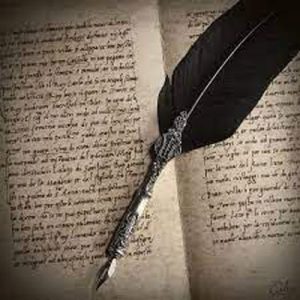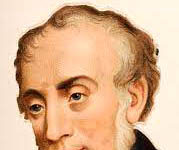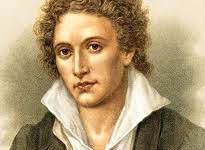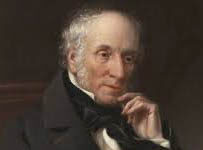The Role of Literature in the Evolution of Human Civilization
The Role of Literature in the Evolution of Human Civilization
The Role of Literature in the Evolution of Human Civilization
Literature, akin to a masterful sculptor carving intricate details onto a monument, has played a pivotal role in shaping the course of human civilization. Like a guide illuminating the path forward, literature has woven a rich fabric of narratives, ideas, and insights, nurturing the growth and evolution of societies. Throughout history, literature has stood as a mosaic of enlightenment, chronicling humanity’s journey, fostering cultural bonds, and catalyzing intellectual progress.
Navigating the Uncharted Waters of History: Literature, much like a seasoned cartographer charting unexplored territories, has mapped the annals of human history. From ancient epics like the “Epic of Gilgamesh” to contemporary historical novels, literature preserves the collective memory of civilizations, offering insights into the struggles, triumphs, and transformations that have shaped societies. Homer’s “The Iliad” and “The Odyssey” offer a window into ancient Greek society, showcasing the values, beliefs, and conflicts of that era while also shedding light on the universality of human experiences.
Sculpting Cultural Identity and Values: Literature acts as a skillful craftsman, sculpting the cultural identity and values of societies. It carves intricate narratives that reflect the ethos, traditions, and moral compass of a people, creating a mirror through which future generations can understand their roots and heritage. William Shakespeare’s plays, such as “Hamlet” and “Romeo and Juliet,” epitomize the values and tensions of Elizabethan England, while also resonating across cultures and eras due to their exploration of timeless themes.
Kindling the Flame of Knowledge and Wisdom: Literature, much like a flame illuminating a dark room, ignites the spark of knowledge and wisdom. Through allegories, parables, and philosophical treatises, literature imparts lessons that transcend generations, enabling individuals to learn from the past and ponder the mysteries of existence. Plato’s dialogues, including “The Republic,” not only expound upon governance and justice in ancient Greece but also delve into metaphysical questions that continue to provoke thought and contemplation.
Fostering Empathy and Cross-Cultural Understanding: Literature functions as a bridge-builder, connecting people across time and space. It fosters empathy by offering glimpses into diverse lives, fostering a cross-cultural understanding that transcends boundaries and fosters a sense of shared humanity. Chimamanda Ngozi Adichie’s novel “Half of a Yellow Sun” provides insight into the Nigerian-Biafran War, nurturing empathy for the experiences of individuals caught in the midst of conflict and upheaval.
Empowering Voices of Change and Reform: Literature serves as a beacon of change, amplifying voices that challenge societal norms and advocate for reform. It empowers writers to address issues such as inequality, injustice, and political turmoil, inciting reflection and spurring action. Charles Dickens’ “A Tale of Two Cities” not only paints a vivid portrait of the French Revolution but also prompts readers to ponder the consequences of social inequality and the potential for revolutionary upheaval.
In essence, literature functions as a masterful weaver, intricately crafting narratives that contribute to the mosaic of human civilization. It guides societies through uncharted territories of history, sculpts cultural identities, ignites the flames of knowledge, fosters empathy, and empowers voices of change. Like a symphony of ideas and emotions, literature resonates across time, uniting generations in a shared understanding of the human experience. As humanity continues to evolve, literature will remain an indispensable thread in the intricate fabric of civilization, bridging past and present, and lighting the path toward a more enlightened future. 0 0 0.
The Role of Literature in the Evolution of Human Civilization
N.B. The article ‘The Role of Literature in the Evolution of Human Civilization’ originally belongs to the book ‘The Origin Evolution & Functions of Literature‘ by Menonim Menonimus. The Role of Literature in the Evolution of Human Civilization
Books of Literary Criticism by M. Menonimus:
- World Short Story Criticism
- World Poetry Criticism
- World Drama Criticism
- World Novel Criticism
- World Essay Criticism
- Indian English Poetry Criticism
- Indian English Poets and Poetry Chief Features
- Emily Dickinson’s Poetry-A Thematic Study
- Walt Whitman’s Poetry-A Thematic Study
- Critical Essays on English Poetry
- Tawfiq al-Hakim’s Novel: Return of the Spirit-An Analytical Study
- Tawfiq al-Hakim’s Novel: ‘Yawmiyyat Naib Fil Arayaf’-An Analytical Study
- Analytical Studies of Some Arabic Short Stories
- A Brief History of Arabic Literature: Pre-Islamic Period (500 AD-622 AD)
- A Brief History of Arabic Literature: Early Islamic Period (622 AD-661 AD)
- Reviews on William Shakespeare’s Works
- Reviews of Charles Dickens’ Works
- Reviews of John Milton’s Literary Works
- Reviews of Some Iconic Travelogues
- Shakespeare’s Sonnets-Critical Studies
- Analytical Studies of Selected Poems of Sarojini Naidu
- Analytical Studies of Selected Poems of Rabindranath Tagore
- Analytical Studies of Selected Indian English Poems
- Reviews of Selected Motivational Books
- Origin Evolution & Functions of Literature …
Additional Searches::
- The Functions of Literature
- Evolutionary Literary Study
- Functions of Literature
- Principles of Literature
- Literary Theory
- Literature and Its Influence on Human Life
- Literature and Evolution











